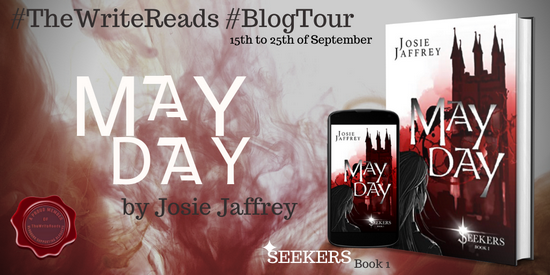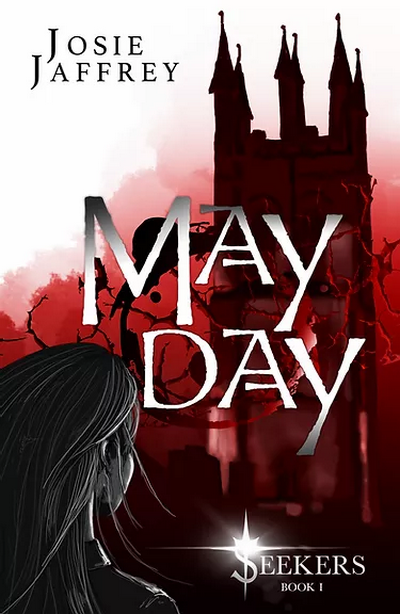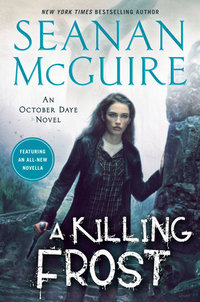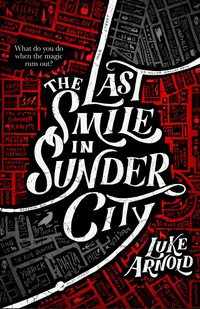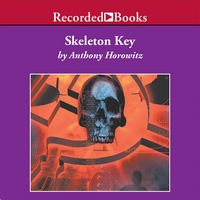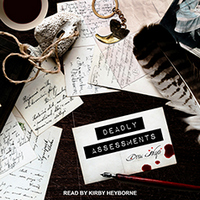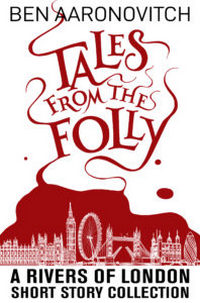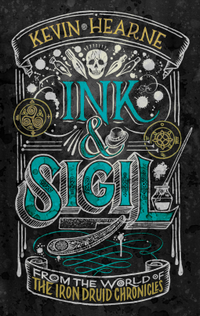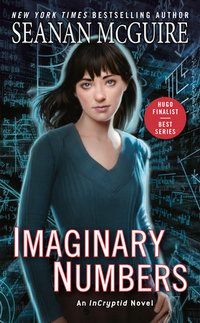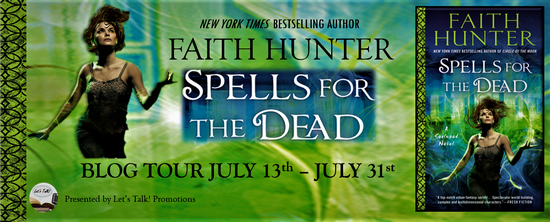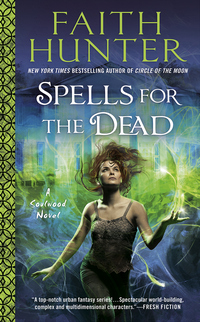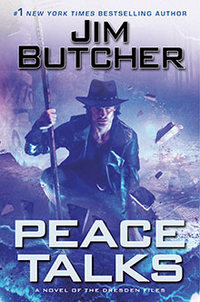
I think this could be my longest post ever, and I’d still leave things left unsaid, you wouldn’t believe the length of my notes for a book of this size. I’ll try to hit the most important points. To fill in whatever lacunae appears below, you should probably also read what was said over at Witty and Sarcastic Bookclub, The Tattooed Book Geek, Grimdark Magazine, and FanFi Addict—they’re what convinced me to buy the book.
“So, you’re a Man for Hire?”
“That’s right.”
“Why don’t you just call yourself a detective?”
“I was worried that might make me sound intelligent.”
The Principal wrinkled his nose. He didn’t know if I was trying to be funny; even less if I’d succeeded.
“What’s your relationship with the police department?”
“We have connections but they’re as thin as I can make them. When they come knocking I have to answer but my clients’ protection and privacy come first. There are lines I can’t cross but I push them back as far as I can.”
What’s The Last Smile in Sunder City About?
Fetch Phillips is hired to find a missing vampire, Edmund Albert Rye, an instructor at an exclusive private school for the children of magical creatures (lycanthropes, vampires, elves, dwarfs, etc.). It’s been a few days since he was seen, which is uncharacteristic enough that the principal’s getting nervous—he’s tough, but he’s been unwell. He, the students, and staff just need to know what happened to him.
I made my way east along Fourteenth Street without much hope for what I might be able to find. Professor Edmund Albert Rye; a man whose life expectancy was already several centuries overdue. I doubted I could bring back anything more than a sad story.
I wasn’t wrong. But things were sticking to the story that knew how to bite.
Fetch gets to work, enjoying the feeling of a good amount of cash in his pocket. The first step is the city library, Rye’s been living in the attic for that last several years, so he could enjoy some privacy and the sunlight. The librarian is just as worried as the principal had been.
It’s really not long before Fetch’s investigation brings him to an old private club for Vampires—and he find the remains of a couple of vampires. The lab concludes that it Rye wasn’t one of the fresh corpses. There’s another dead magical creature there, one that Fetch has never seen, and it takes a couple of days for the results identifying that to come in, too.
One thing that Fetch learns fairly soon is that Rye isn’t the only one missing, a girl vanished around the same time as he did. Now, Fetch has to track down a missing vampire and a teen-aged Siren. His work is definitely cut out for him.
Because he knows from the get-go that the story he’ll bring back to his employer won’t have a happy ending, he has a hard time pursuing it head-on. He keeps finding little things to distract himself, to slow the investigation. Even when the missing girl gets factored in, and he knows he needs to be fully committed just to have a chance to find her, to. He really can’t pull it off. The sad story just became so much sadder, and he doesn’t want to know the depth of that sadness.
Fetch Phillips
While the majority of the book traces this story, we also get several flashback chapters tracing Fetch’s tragic childhood, decent (but not great) adolescence and then troubled adulthood leading up to the point where he helped the Human Army destroy all the magic in the world. It’s an event called the Coda, and it occurred six years before Fetch was hired by the school. All magical creatures lost the abilities that distinguished their races, and the world was never the same. As an act of penance that no one but Fetch cares about, he’s since refused to work for humans, only for formerly-magic creatures. Which is what brought him to the search for Rye.
Fetch is a broken man—he wasn’t in great shape before the Coda, but he’s worse after it. An ex-soldier, convicted criminal, ex-prisoner, and now a drunk, with moments of sobriety (fewer than he should have while on a job, but all that money can buy many drinks).
There was a hangover on the horizon, along with something else. Something sort of stupid.
A devil was sitting on my shoulder whispering the kinds of things that stopped working on me years ago. I was only in my thirties but I was old. You don’t measure age in years, you measure it in lessons learned and repeated mistakes and how hard it is to force a little hope into your heart. Old just means jaded and cynical and tired. And boy, was I tired.
It’s the penance that drives him. He’d been an author of so much of what was wrong with the world, and he’s doing what he can to alleviate it just a little bit. It’s the only thing keeping him going. It’s not enough, but it’s all he has.
Fetch is such a rich character. It’s hard to like him, it’s hard to find anything redeemable in him*, any reason to be interested in what happens to him. But you can’t help pull for this broken, beaten, disillusioned, and cynical man.
* Which is, admittedly, the point of redemption.
What a Piece of Worldbuilding
This is such an incredibly conceived world. The Coda is so fresh that the citizens have started to move on, but aren’t used to dealing with the post-magical world. And so many of them are still hoping that it’ll all come back just as suddenly as it left.
The mixture of the fantasy elements and Human tech and science in this world, picking up the slack for the things that magic can’t do anymore is so rich, so well designed, so well-written that the reader has to stop every so often and try to take it in.
Even if I didn’t really like the book all that much, I’d still be recommending the book for the worldbuilding. It’s a master class in how to do it, how to describe it, and how to reveal it to the reader.
A Gripe
Just so, so, so many extended passages in italics. I won’t try to make a case against them, Benjamin Dryer does a better job than I possibly could. I just find them aggravating. It’d be so easy to indicate that something’s a flashback without them and spare readers the annoyance.
So, what did I think about The Last Smile in Sunder City?
Maybe nobody gets better. Maybe bad people just get worse. It’s not the bad things that make people bad, though. From what I’ve seen, we all work together in the face of adversity. Join up like brothers and work to overcome whatever big old evil wants to hold us down. The thing that kills us is the hope. Give a good man something to protect and you’ll turn him into a killer.
Fetch is a classic hard-boiled detective in a classically noir tale—the fact that it takes place in a Fantasy world (yet full of fairly modern technology) is just icing on a pretty tasty cake. The narrative voice is great, the writing leaps to life, and I can’t say enough about the way the world—and the novel—were designed and executed.
This probably deserves more than the 4 Stars I’m giving it, but I just didn’t connect with the story, with Fetch, with everything else going on as much as I wanted to. This regrettably ends up in the category of books that I admire more than I enjoy. But my admiration of this is so high that it almost doesn’t matter. This is a great Fantasy novel, and one unlike any you’ve read.
The sequel is out in a couple of weeks—I’m coming back to this world because now that Arnold doesn’t have to spend so much time explaining how the world works (or, more properly, how it no longer works) that he’ll be able to focus on telling a story or two, and I want to see what heights he’s capable of when the rules have already been established.
Do I recommend this book? Oh yeah. You’ll probably like it more than I did (I’m a little worried about hitting “publish” on this, as I know I’m one of the less enthusiastic readers of this). And even if you don’t, you’ll be just as impressed as I am with Arnold’s imagination and skill.


This post contains an affiliate link. If you purchase from it, I will get a small commission at no additional cost to you. As always, opinions are my own.


